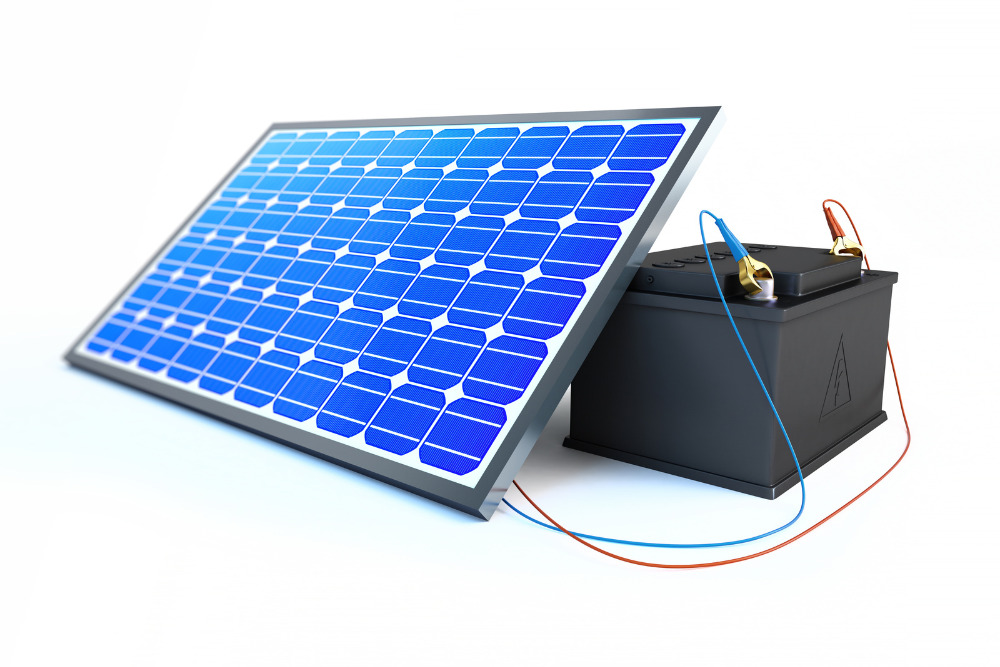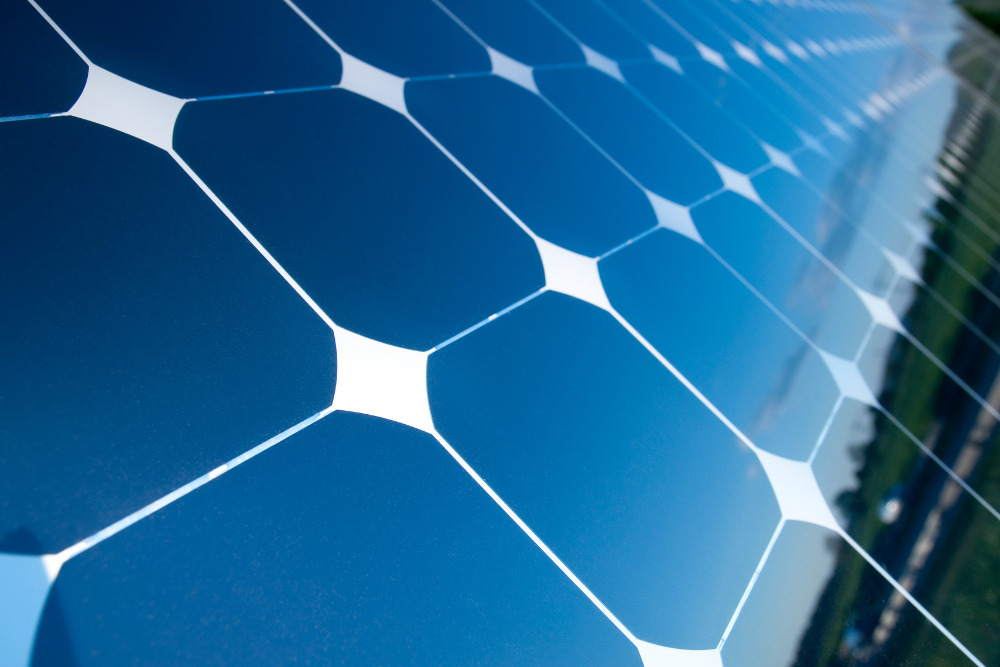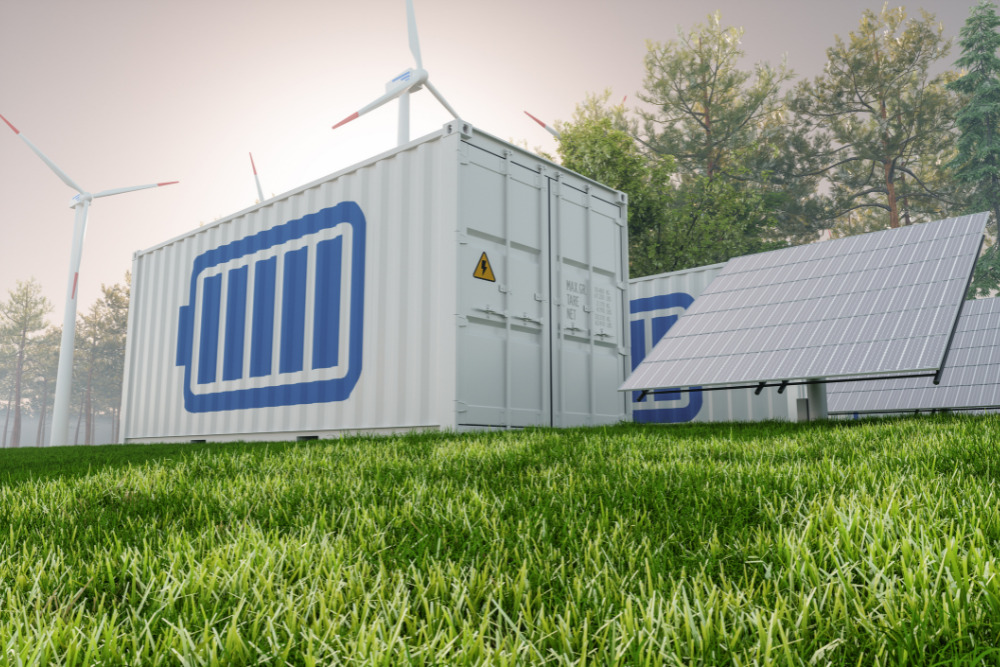
Solar batteries capture and store energy from the sun. They provide backup power during outages and when the sun isn’t shining, and they support homeowners and businesses that want to be more energy independent. The primary disadvantages of solar storage are cost, capacity limitations, and environmental impacts.
Solar energy systems are weather dependent, so their output is reduced during cloudy days. Moreover, if they are connected to the electric grid, they are affected by power outages, making them unreliable for homeowners with greater energy needs.
Solar energy storage systems can be integrated with solar panels to provide additional solar power. These storage technologies provide peace of mind by storing energy for later usage.
How Does A Solar Energy Storage System Work?
A solar battery system is integrated with a solar panel system. During peak sun hours, the batteries capture and store any excess energy that a home or business doesn’t use. Solar panels alone cannot store energy for later usage, but a solar battery can. Here’s how the two work together:
- Solar panels collect solar energy during the day in the form of direct current (DC) electricity.
- Solar panel inverters convert direct current electricity into alternating current (AC) electricity, making it usable for your home.
- AC electricity powers home appliances just like the utility company would, but lessens the energy costs.
- One or more rechargeable solar batteries (most commonly a lithium-ion battery or lead acid battery) are directly connected to the home solar system. The batteries are “charged” by the excess energy flowing into them during the day.
- This stored excess power can be used at night or during power grid blackouts. It’s a great backup option for interconnected solar systems and a necessity for an off-grid system.
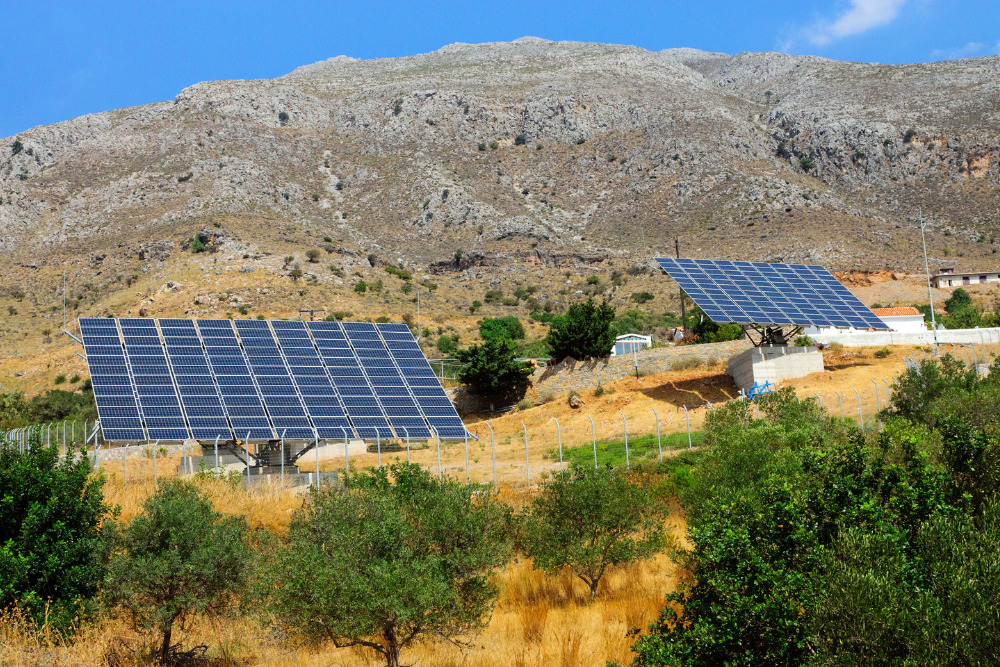
What Are The Benefits Of Solar Energy Storage?
Benefits of solar battery storage include:
- Lower electricity bills. Storing and using more of your own energy can reduce your energy bills even more than a home solar PV system alone. Depending on your battery capacity and energy usage, you may be able to completely eliminate your electricity bill.
- Energy independence. The ability to store solar energy for later usage increases the self-sufficiency of both interconnected and off-grid systems.
- Time-of-use optimization. Time-of-use (TOU) means that electricity rates depend on the time of day. Generally, it costs more to run major appliances during the day as it’s considered a peak demand period. Solar batteries can help reduce energy bills by optimizing energy consumption throughout the day. If necessary, batteries can be charged using grid electricity at night (off-peak) when electricity rates are lower.
- Load shifting. Battery storage systems also help by adjusting the timing when stored energy is used through load shifting. This means changing when the energy is used without affecting overall consumption.
- Backup power. Having energy security and resiliency is essential during blackouts or cloudy days with insufficient sunlight.
- Grid stability. Solar batteries contribute to grid stability by improving system frequency regulation. Whenever there is a deviation from the standard 50 Hz, the batteries can adjust the frequency. This is possible thanks to their continuous grid monitoring feature.
- Sustainability. Solar energy storage systems reduce your carbon footprint by providing another way to use renewable energy. They’re also more eco-friendly than other backup power sources (such as generators) since they don’t use fossil fuels.
- Incentives. Federal tax credits, rebates, and net metering are the most common incentives for installing a solar-plus-storage system. Depending on your state, you may qualify for additional programs like California’s Self-Generation Incentive Program (SGIP).
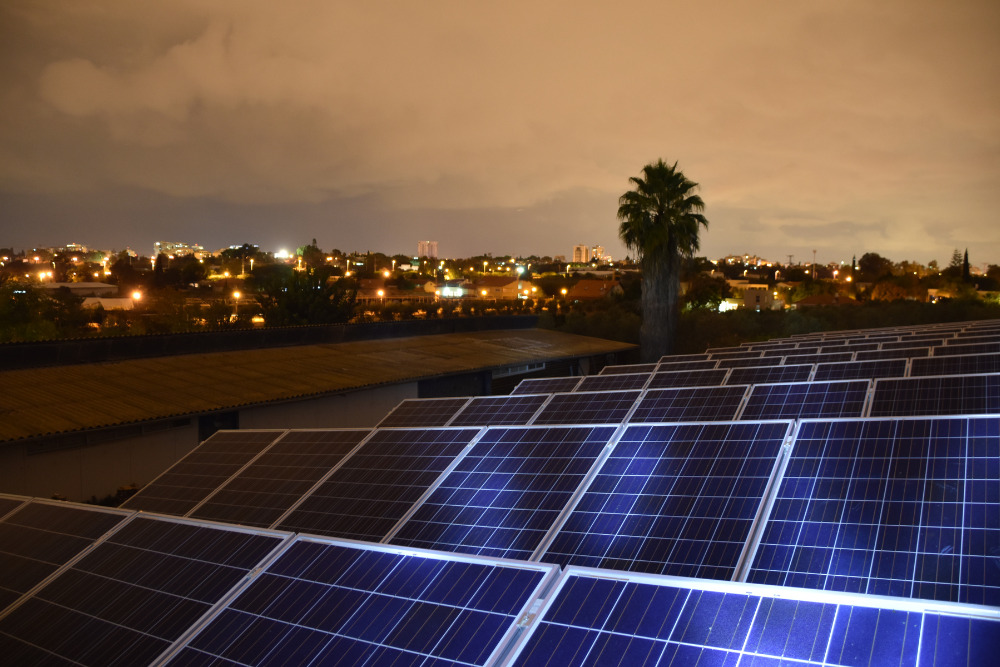
What Are the Disadvantages Of Solar Energy Storage?
Common drawbacks of solar energy storage systems are:
- Upfront costs. Purchasing solar batteries can be a big expense in addition to installing solar panels. However, keep in mind that installation costs have dropped significantly as of 2015 and continue to do so.
- Limited storage capacity. Although a solar battery storage system works well as a solar system backup, it still has limited capacity and must continually be charged via the sun or grid electricity to be ready to use. For homes and businesses with higher energy needs, they’ll find that higher-capacity batteries are more expensive.
- Efficiency and energy loss. Energy loss in solar batteries can occur during their charging and discharging cycles. Like all batteries, they become more inefficient overall as they age.
- Lifespan and maintenance. The typical lifespan of a solar battery is five to 15 years, and they’re expensive to replace. For a home solar system that lasts 25 to 30 years, the cost adds up over time.
- Environmental impact. Manufacturing and disposal of batteries is not environmentally friendly, as they are not recyclable.
- System complexity. Adding solar batteries with multiple components to your solar system is a complex process and requires hiring a professional — which also adds to the costs.
- Safety risks. Inadequately installed, maintained, or damaged batteries can become a fire hazard since they are more likely to overheat and malfunction.
Do You Need To Install A Solar Battery?
Only true, off-grid solar systems need a battery for complete solar system stability and reliability. However, interconnected systems still benefit from solar power storage. You may want to install a solar-plus-storage system if you want to be more energy independent and have backup power at all times. Talk to your solar installer to weigh your needs and budget and decide on the best option for powering your home.
